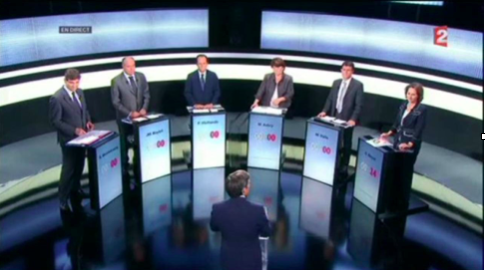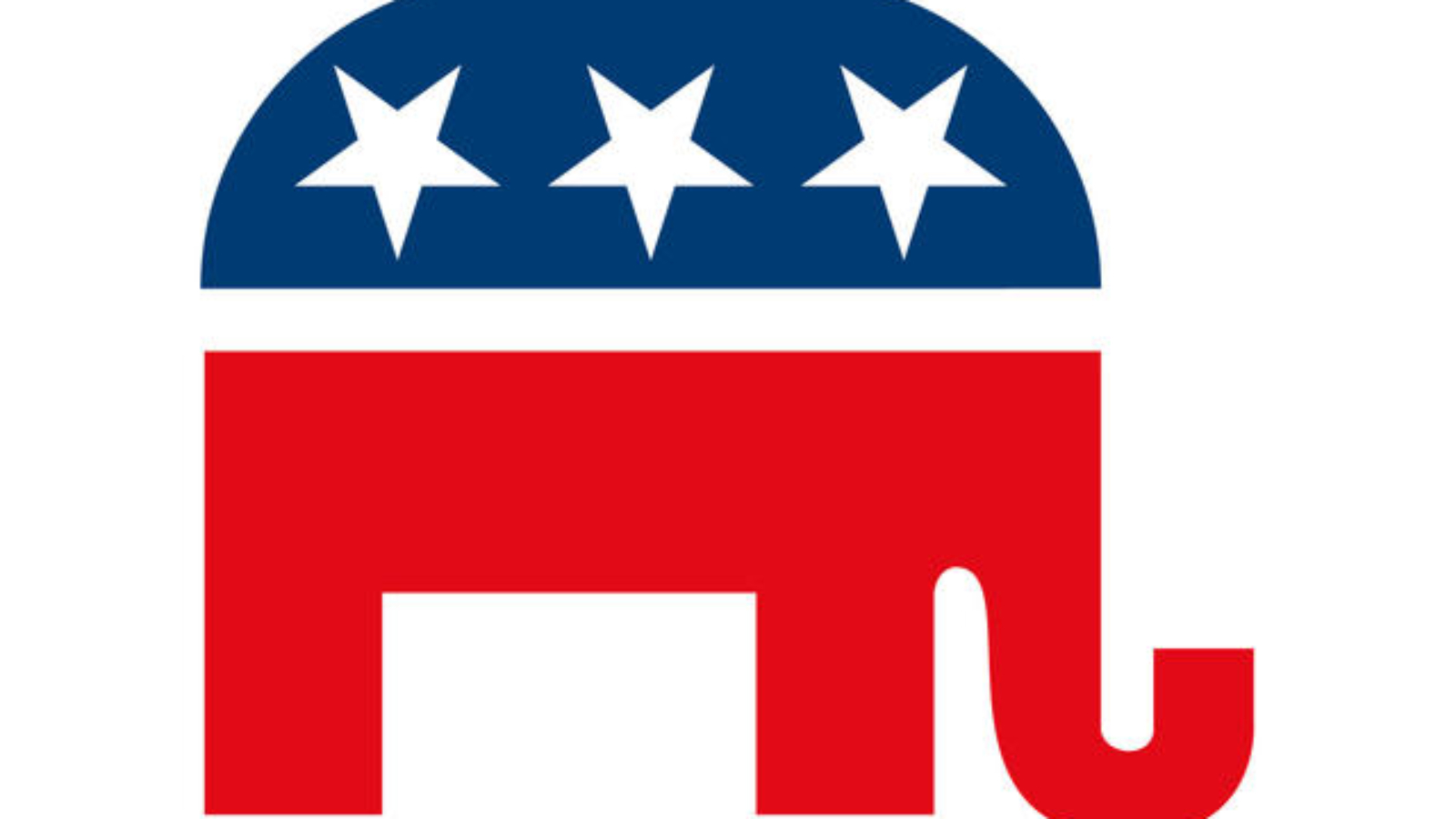By Sasha Mitchell
On Thursday August 7, around 9 p.m., I happily tuned in to Fox News — something I don’t usually do — to watch the first GOP primary debate, the first primary I’ve made a point to watch since the Parti Socialiste’s primaries in 2011, prior to the 2012 presidential election in France, my home country.
Debates and primaries are essential to the democratic process and party members should be able to decide who they think is best suited to take on the other opposing party’s nominee and, ultimately, win the presidential race. The main French right wing party – which renamed themselves Les Républicains (yes, ‘The Republicans’) two months ago — didn’t believe up until now that their members should have a substantial say in their nominations process. The Socialists, for their part, only took up debating and primaries in the run up to the 2007 election.
This rather undemocratic tradition stems from the right’s belief in the natural emergence of an homme providentiel (Man of Providence), a charismatic leader with a vision for the country, capable of attracting widespread support and paving the way to victory. Historically, the right’s homme providentiel was Charles de Gaulle, the Général who put an end to the political turmoil caused by the break-up of France’s colonial Empire at the end of the 1950s and subsequently became the first president of the fifth republic in 1959 – sitting President François Hollande being the seventh. This is about to change for the better, as Les Républicains will be organizing their first primaries next year, ahead of the 2017 presidential election.
That said, and as the cameras hovered down and turned toward the stage on Thursday evening, I was instantly struck by the number of candidates standing before the three moderators. Nearly enough to set up a corporate soccer team of middle-aged, overwhelmingly white men, with seven substitutes waiting backstage following the “Happy Hour” debate that took place earlier that day. This doesn’t seem to be the ideal way to pick a candidate, considering that each of the contenders was only given just over a minute to answer the panel’s questions. With the audience cheering in the background, the debate looked at times more like a game show than a serious political program.
In that respect, the difference between this showing and the most recent Socialist primaries in France is stark — and not merely in terms of ideology. In 2011, there were just six contenders for the party’s nomination, two of whom embodied the right (including current Prime Minister Manuel Valls) and left fringes of the Parti Socialiste (PS). In such circumstances, less prominent politicians usually rally around and support the candidate they believe stands for their ideas and has the best chance of winning instead of running against them. As for the debates, they took place in small, crowdless, bland television studios, and were moderated by one or two journalists.
 A Parti Socialiste primary debate, in the fall of 2011.
A Parti Socialiste primary debate, in the fall of 2011.
Having as many as 17 contenders is quite questionable, particularly given the fact that so many of the Republican candidates seemed to overlap on a wide range of issues, such as immigration, economic growth, and foreign policy. Paradoxically enough, they also scarcely offered concrete solutions to fix any of these issues, apart from building a wall — or fence — on the border with Mexico. When asked “how on earth” he would deliver the 19 million jobs he pledged to create along with a 4 percent growth rate, Jeb Bush replied that he would essentially “change every aspect of regulations that are job killers and get rid of Obamacare and replace it with something that doesn’t suppress wages and kill jobs,” whatever that actually means.
In addition to the overall vagueness and shallowness of most responses, the moderators asked the candidates to address issues that would appear like relics of the past to a majority of voters on the other side of the Atlantic, even to many on the right. Banning abortion would be one of them. Although the right to deliberately end a pregnancy is frequently attacked in France by a minority of pro-lifers and radical religious organizations (a march against abortion takes place once a year in the streets of Paris) the issue isn’t debated in the political arena. Abortion was legalized 40 years ago, thanks to the work of concentration camp survivor and centrist minister Simone Veil — in the face of a great deal of sexism, and is now accepted as the status quo by a vast majority of the French population.
It was somewhat tragically amusing to see that during the primetime Republican debates, women didn’t even have a chance to speak for themselves, as there weren’t any on stage. Of course, this isn’t solely an American problem. The French political class also suffers from a lack of gender diversity. As the Républicains’ primary looms, five of the six candidates to have declared so far are male — including former president Nicolas Sarkozy and ex-prime ministers Alain Juppé and François Fillion. In the French Parliament, the figures are even more striking. Based on information provided by National Parliaments, the Inter-Parliamentary Union found that there were fewer women (26.2 percent) in the French Lower House of Parliament than in those of Mozambique and Iraq, as of June 1, 2015. The United States ranked 71, with just over 19 percent of female Representatives.
Finally, enter the Almighty. I had to pinch myself when the last Facebook question popped up, asking the ten contenders whether any of them had “received a word from God on what they should do and take care of first.” The candidates then proceeded to talk about their faith, families, and political track records for over five minutes, almost quadruple the time spent discussing racial issues. That is the kind of situation a French voter like myself is not prepared for. France has been a secular country since 1905, when the Church was separated from the State, meaning that the former has not interfered with the latter’s business for 110 years, and that no politician would ever talk about their religious faith or invoke God in public.
As the debate came to a close, I began to wonder whether the French system was ultimately any ‘better’ than the American one. Both countries have a) a presidential system that gives too much importance to a single person, b) a political arena that resembles at times a reality show — or a circus, and c) an overabundance of middle-aged, white male politicians. (The list could probably go all the way to z, but three is enough for now.) Both b and c were the most conspicuous during the GOP debate. The former showed how flawed the American democratic process is, when candidates are expected to be picked based on the populist assertions they make rather than the concrete policy arguments they put forward, while the latter sheds light on the lack of representation for all Americans.
Such democratic processes, however, are not condemned to remain flawed forever. The time has come, despite a long-standing tradition in France and in the United States, to do away with the presidential system — a system that ultimately forces a majority of voters to choose between the candidate they dislike the most and the candidate they dislike the least instead of the political ideas and ideals they fundamentally believe in. It is well within the power of voters and citizens to demand greater representation and constitutional powers in their respective legislatures, be it ideologically or in terms of gender and race. If there’s anything the similarities between the French and American systems tell us, it is that it is far from too late, in short, to reinvent democracy on both sides of the Atlantic.
*****
*****
Sasha Mitchell is an editorial assistant at World Policy Journal.
[Photo modified from Wikimedia Commons]
